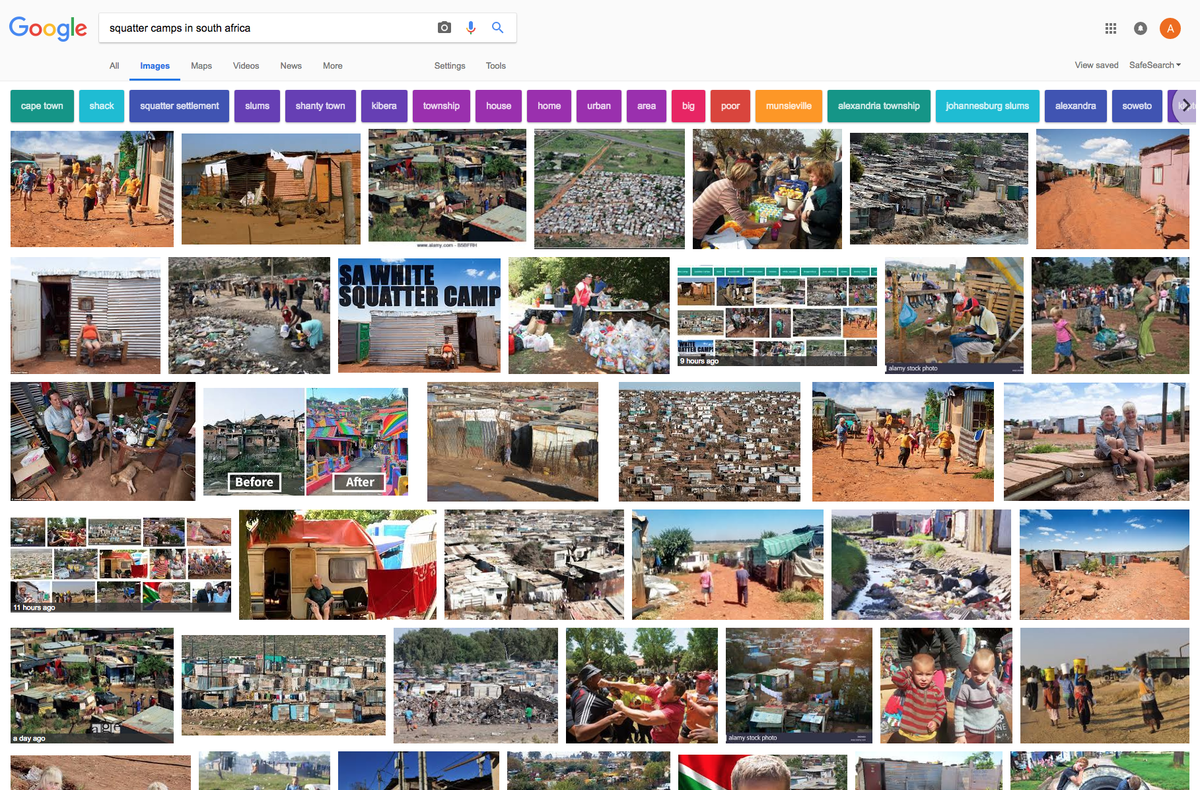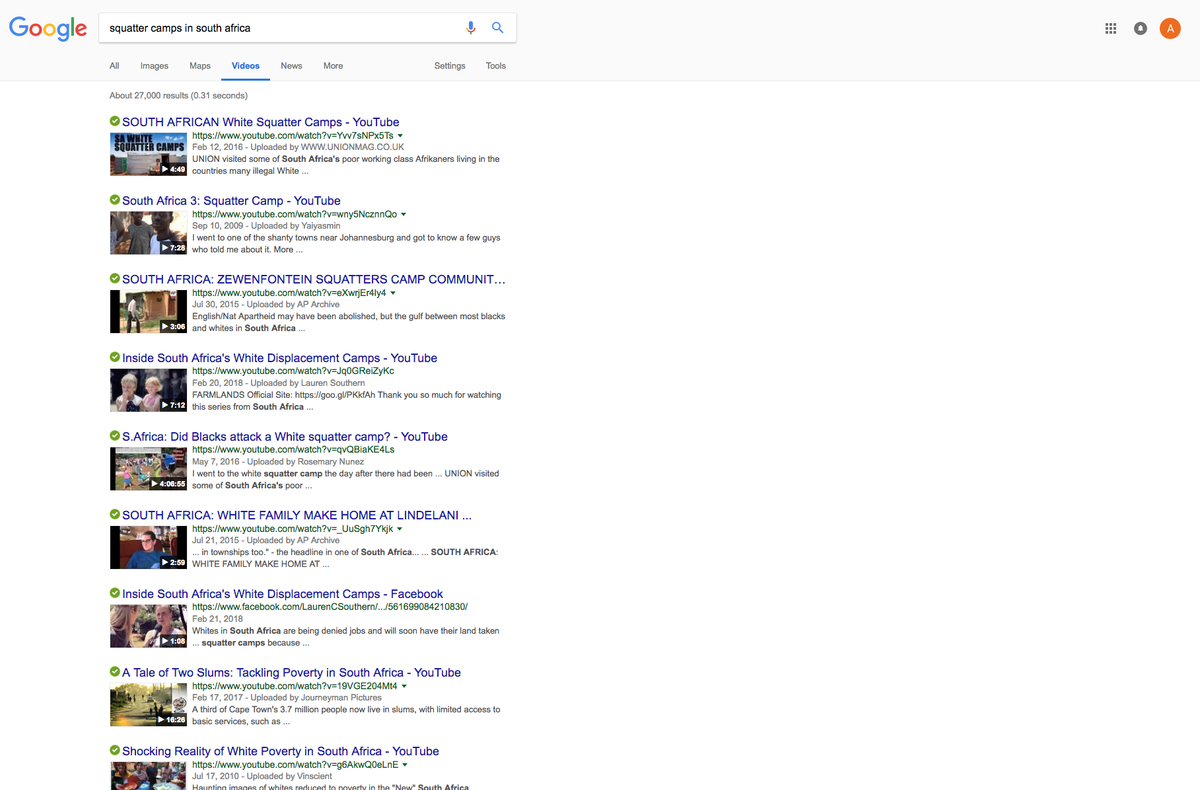Google’s Ranking Algorithm is Not Racist – I Promise



If you did a search in Google Images or Video for “squatter camps in South Africa” this week you would have been shown a barrage of images depicting white people living in a shanty town. Some studious scrolling would have revealed similar images of black and coloured people. This has led to an outcry on social media, especially in South Africa.
Various people have called Google racist and accused the search engine of trying to promote the cause of white people in South Africa. But is Google really behind this skewed search result?
No – it most certainly is not.
You see, Google as we see it is actually just a computer running a program. That program essentially says, in a far more complicated fashion, “if people like this content, show it first”.
So, what actually happened?
What actually happened was a bit of a coincidence. Someone decided that it was a good idea to write an expose on whites living in squatter camps. A few others saw this content and decided to follow suit. If you check the search results, not the images and videos, you will find a number of articles on different websites focussing on this particular topic. What you don’t see are any articles looking at predominantly black squatter camps.
The end result is that there is more recent content showing white squatter camps than there is for their black counterparts.
Google’s algorithm is coded to check a number of different factors, there are over 200 different factors. Among these ranking factors are:
- Post recency
- Website activity
- Content relevance to the given search
- Backlinks to the content
- Bounce rate for the content
- Level of traffic for the content
So, an article that has been published recently on a website that Google considers to be authoritative (has been around and active for a long time and is cited on other websites around the internet) which gets a lot of traffic that sticks around for a good amount of time is going to rank better than an old article that has not been read for some time.
If you then consider that the most recent article on squatter camps in South Africa was written published on the SABC News website in March 2018 is about a predominantly white squatter camp, can you really blame Google for thinking that this is the most relevant result? It is just a machine after all.
So where did the other images come from?
That particular article shows only one image and a single video. However, a little digging in the search results reveals a number of other articles that were written over the past few years which focus on white squatter camps and contain other images. Once again – the glaring missing information is any article about black squatter camps. Thus, Google does not have any recent imagery or videos to show for anything other than white squatter camps.
What does it actually mean then?
What it means is that search engine optimisation is a powerful tool that can be used to show a very skewed picture of any given topic. It shows that Google is just a machine at the mercy of the media and what people find scintillating.
The ironic thing is that, the more people share the stories in outrage at the results, the more entrenched that particular set of images is going to become as the shares of the articles are simply boosting their authority and keeping Google aware of the content.
What could be done to fix the search results?
In order to show the true picture of South African poverty and the state of the poor in that country, it is up to the media to start focussing on the population as a whole rather than one subsection. Those who find it unfair that the white squatter camps are getting all the attention could go out and write articles and exposes about the other squatter camps – there are plenty of them. Then get those articles published online. Make sure that you create some YouTube videos, Google likes those too. Take plenty of pictures and tag them as squatter camps in South Africa. Write your content well and send it to the influencers and news websites with original images and try to get the content published there.
Enough of that kind of activity will very quickly change the search results. A little SEO goes a long way to changing how Google shows the world that we live in.
